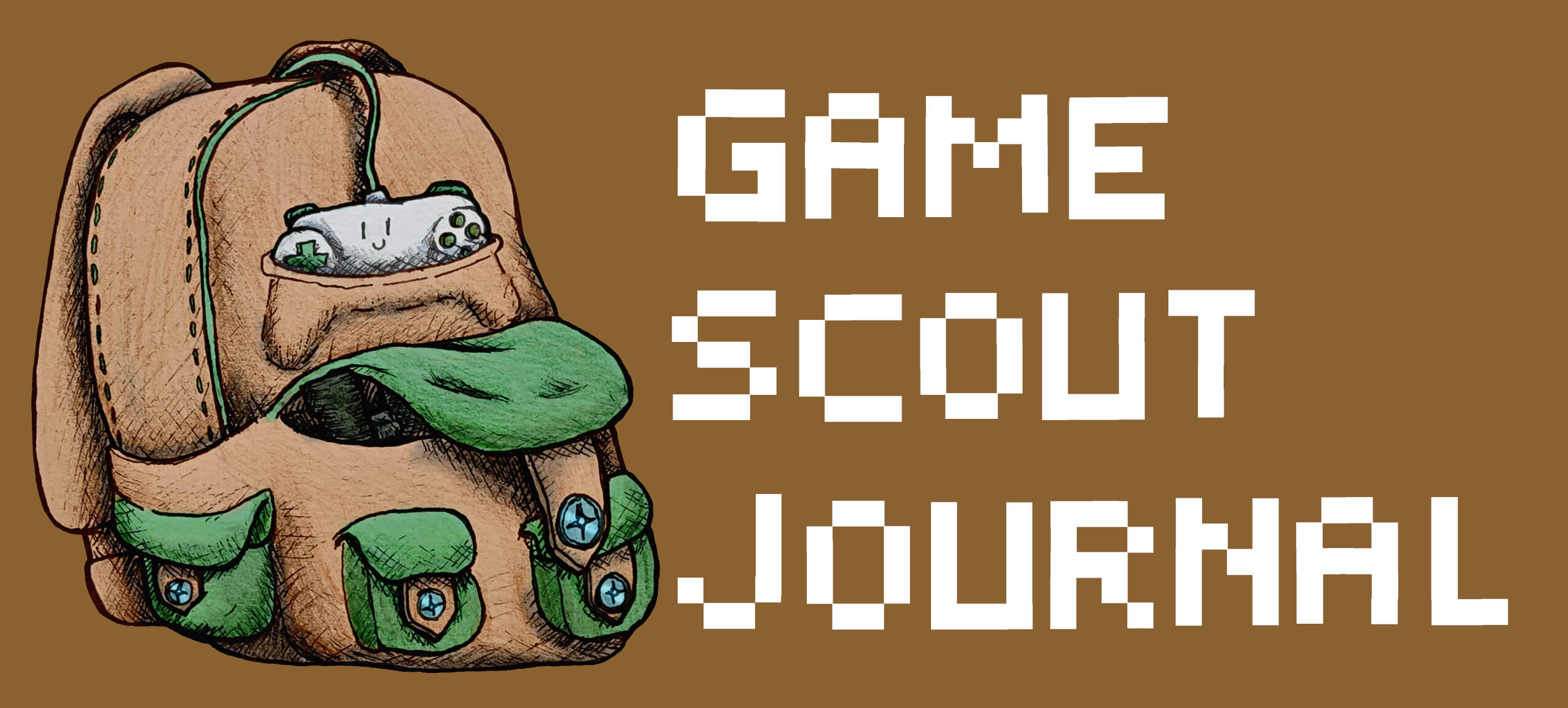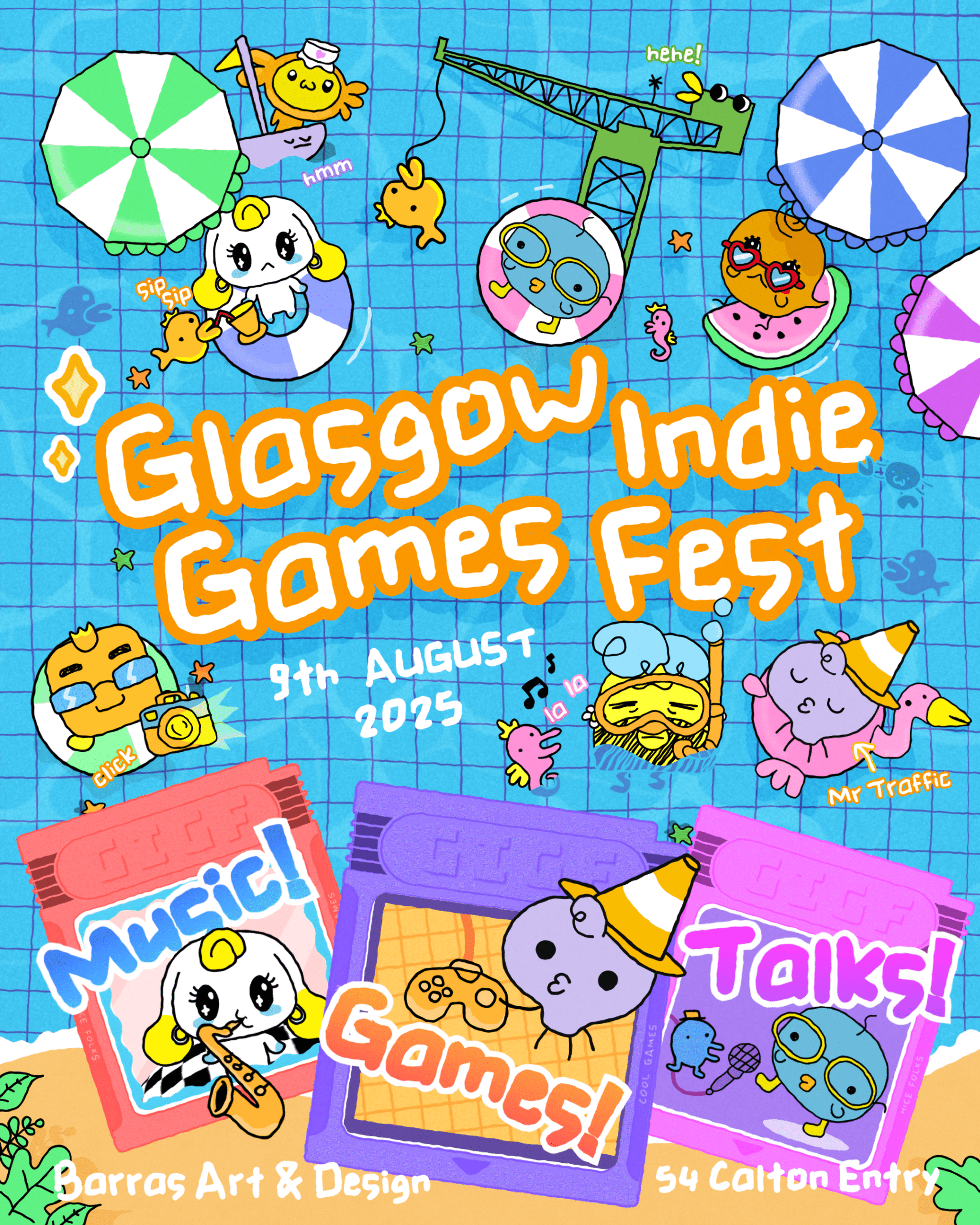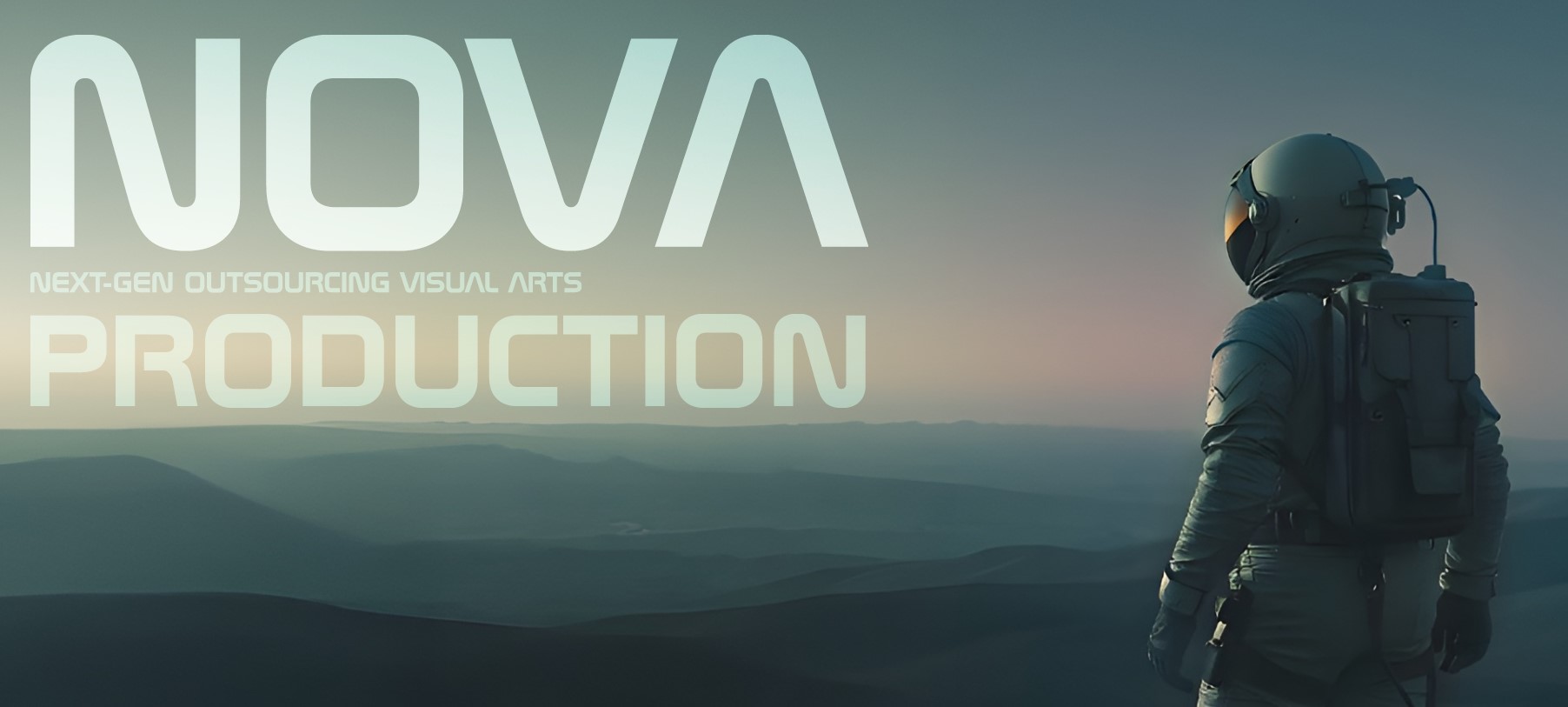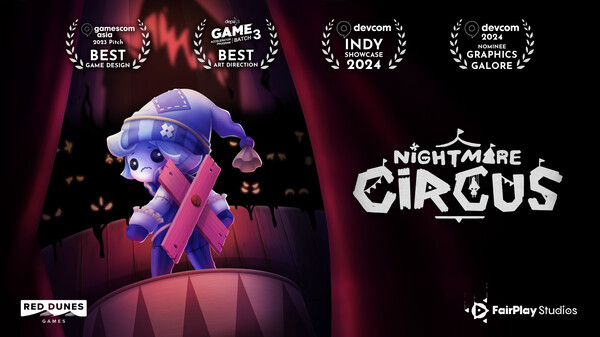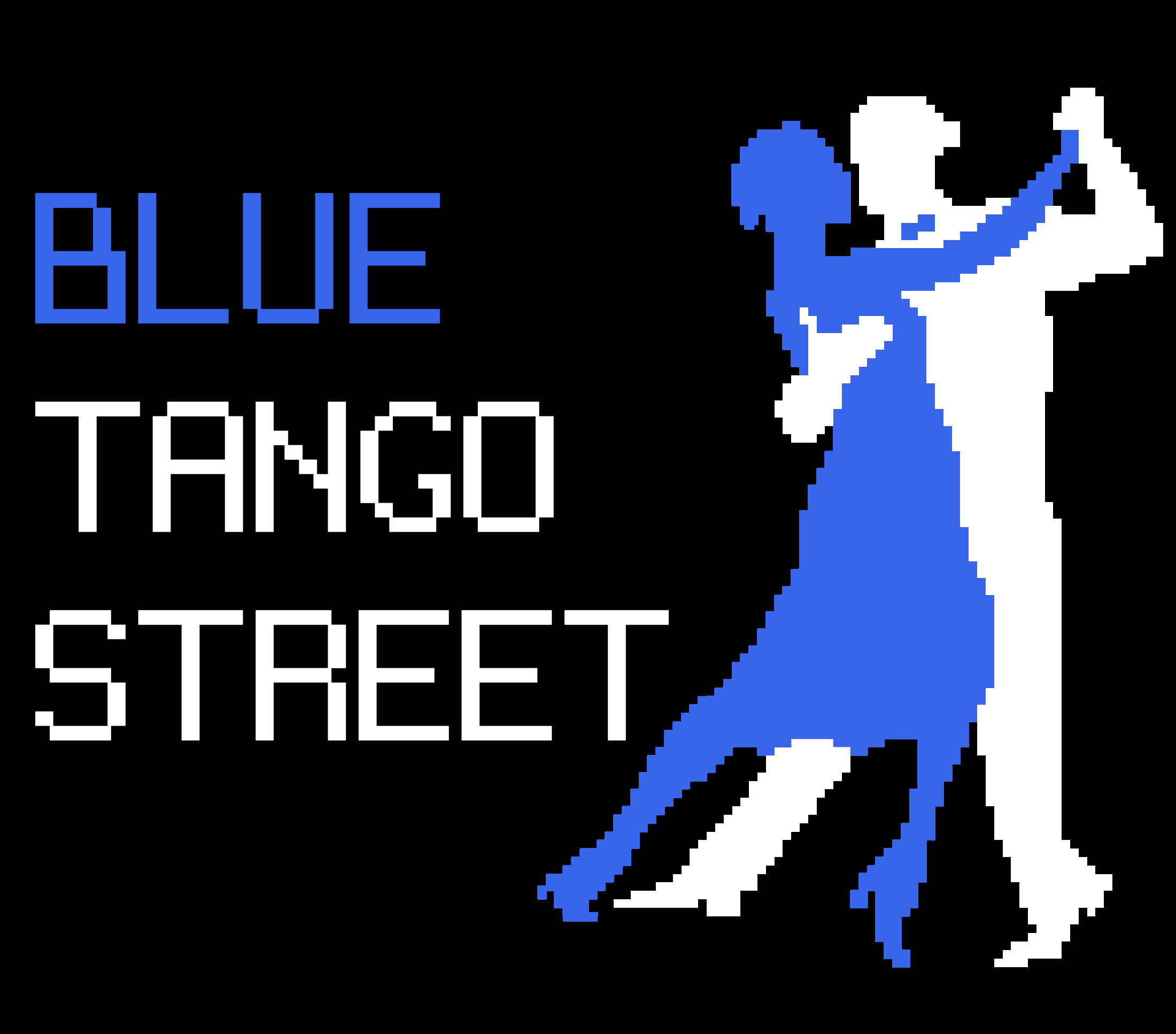On Saturday 9th August, the Glasgow Independent Games Festival will be taking over the Barras Art & Design (BAaD) building, a beloved space nestled in the heart of a container yard in the city. This year, due to almost double the capacity of last year, there will be both afternoon and evening tickets, but right now only the evening remains available.
With more games, more talks, and more accompanying music than last years inaugural event, this year marks a confident stride forward for the indie games scene in Glasgow. While GIGF’s ambitions have grown from humble origins as the Southside Indepedent Games Festival, the festival’s core ethos remains firmly rooted in sharing the weirdest, the bravest, and the most unconventional games coming out of Scotland and around the world.
For those familiar with the event’s DIY origins, its sustained growth shows how important these local boutique styled Indie-Events are to the industry.
GIGF’s Pub-room Origins
The origin of this whimsical gathering begins with Joe Bain, a passionate figure who relocated from London to Glasgow eight years ago. Missing the frequency and intimacy of London’s indie games scene, having hosted several meetups of his own there, Joe decided to recreate it in Scotland.
Like most great things, GIGF started in a small side-room in a bar. Joe hooked up six borrowed PCs, and invited a handful of developers to share their work. That first night, around thirty people attended. Although small, this allowed the beginnings of a community to form, and allowed Joe to network within his new hometown of Glasgow.
As time progressed each festival brought a larger crowd, and Joe eventually found himself surrounded by a team of collaborators. We spoke to Ryan Caulfield who acts as event MC and host, but Joe also gave props to people like Shelby Susannah Smith for their visual brand, and Mike for his support in Marketing.
Why GIGF Feels Different
What sets the Glasgow Independent Games Festival apart from other regional showcases is not its size or list of exhibitors, but its sensibility. Unlike the slick, high-budget aesthetic of commercial expos, GIGF leans into a curated informality: embracing the weird!
The team will be bringing in unconventional games just as much as they will be bringing unconventional entertainment. And, as Ryan and Joe emphasised, “It’s as much about the entertainment as it is the games.” We’ll see a former Scottish slam champion (with game-themed poetry!), the famed GGs band, and even a face painter! The idea is that people will have a proper day or night out at GIGF and enjoy more than just networking or looking at games.
Another important factor for Joe, having visited many conferences or indie showcases in his life, was fairness for the Indie Devs. Previously, he had seen the competitive war-zone of conference spaces where one company might rock up with humongous banners, a mascot, and a sea of flyers: whereas others, with a table and a laptop, are drowned out.
At GIGF developers are encouraged to present their work in a way that reflects its spirit, without resorting to commercial display techniques. Booths will be equitable and fair, with designated spaces. There are no towering roll-ups, no flashy backdrops. It is an intentional levelling of the field that gives everyone a fair chance at getting attention from visitors.
Games and Cultural Identity: A Scottish Festival
A defining characteristic of GIGF, of course, is it’s distinctly Scottish voice. Many of the games on display are not only made by local developers but explore themes, landscapes, and traditions unique to Scotland.
- Rainy Day Racer offers a lo-fi, retro racing experience set within a dreamlike version of Scotland’s urban geography, replete with Glasgow and Edinburgh’s brooding weather and cityscapes.
- Daemonologie, Farewell North, and Cairn: Mathair’s Curse draw from the nation’s folkloric and mythic traditions.
- The Honours Project presents a unique and deeply personal narrative of the challenges of a game developer student in Dundee.
What’s more, many of these projects are not necessarily produced by established studios. They are passion projects built during weekends and after-hours, often by students, artists, or developers working outside their day jobs.
This also applies to the festival itself. Organised by a small team of volunteers, GIGF is assembled on goodwill, donated hours, and modest sponsorship and ticket sales that will just see the team break even or get a small beer-budget in profit. Born from necessity, the Glasgow Independent Games Festival is set out to be worth more than the sum of its parts. Without money as motivation, fun can take centre stage.
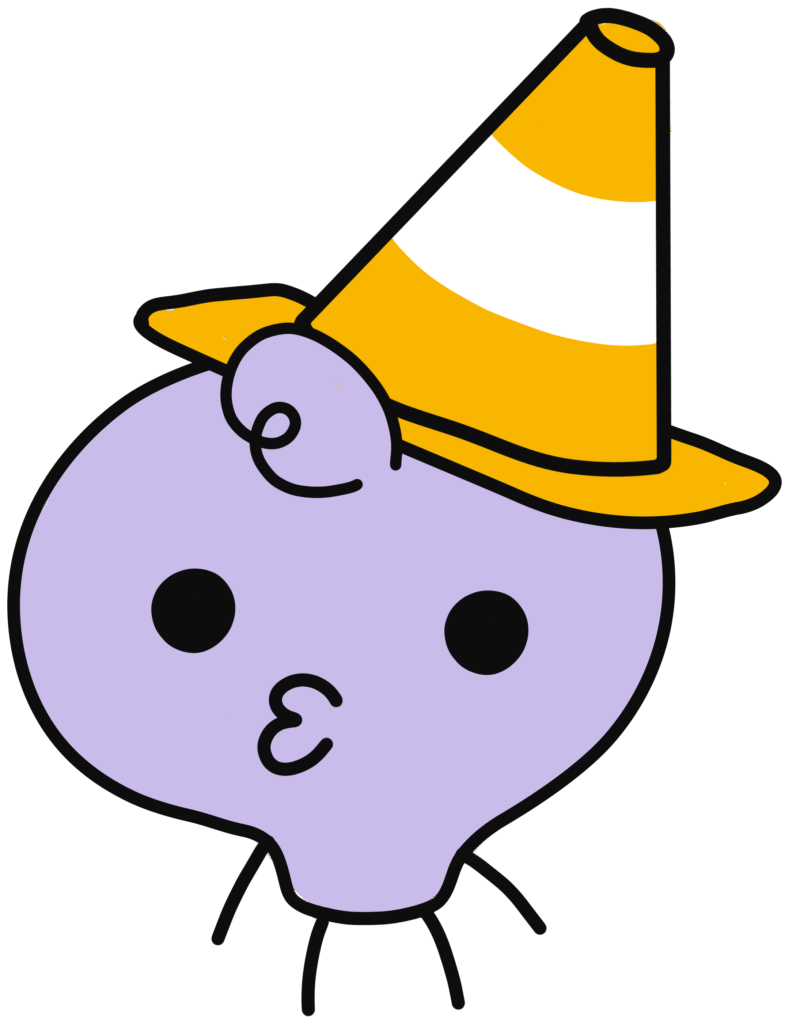
A Day of Play
GIGF is structured to evoke a sense of rhythm across the day. The afternoon begins with a series of talks and workshops. With a variety of topics covered, the talks are intermittently interrupted by live performance and entertainment.
Their afternoon closing show stars Siobhan Wilson, a Singer-Songwriter and Composer covered by BBC and Rolling Stone for her work in games and beyond. Later, Calum Rodger, former Scottish Slam Champion, returns with his singular brand of videogame poetry.
The evening also features the Best in Show award and a raucous performance from The GGs, a video game music cover band known for slipping between punk energy and 8-bit nostalgia.
Why GIGF Matters
GIGF provides a platform for emerging voices, for experimentation, for stories and sounds that might not fit elsewhere. And in a time when the games industry is often characterized by volatility and risk-aversion, events like GIGF remind us that, ultimately, our industry should always prioritise two things: creativity, and fun.
So if you find yourself in Glasgow this weekend. Or heavens forbid you are already there and haven’t bought a ticket. Then buy one! Spend an afternoon chatting to developers, attending a workshop, or watching a poet. Stay late. Stay weird.
Full Schedule: Saturday, 9th August
Afternoon Session – From 12pm
- 12:00pm – Doors Open
- 1:00pm – 1:20pm – Chris Filip: “Third Choices: Gaming Beyond This or That”
- 1:30pm – 1:50pm – Daniel Morrison Neil: “The Value of Video Game Mods”
- 2:00pm – 2:20pm – Steven Mair: “Lessons from One Year of Gaming in a Children’s Hospital”
- 2:45pm – 3:45pm – V Buckenham: “Let’s Make a Game Together! No Code? No Problem!
- 4:00pm – 4:30pm – Siobhan Wilson: Live performance by indie musician and Planet of Lana composer
Evening Session – From 5pm
- 5:30pm – 5:50pm – Claire Morwood: “Cardboard, Clay, Fabric and Green Screens: Exploring Craft Mediums in Game Art”
- 6:00pm – 6:20pm – Stanley Baxton: “Worldbuilding Through Negative Space”
- 6:30pm – 6:50pm – Harun Ali: “How Mentorships Can Help You With Your Career”
- 7:00pm – 7:20pm – Thomas Welsh: “Write Buddy Cops. Even If They’re Not Buddies. Or Cops.”
- 8:00pm – 8:45pm – Calum Rodger: Live videogame poetry performance
- 9:00pm – Close – Best in Show awards, followed by live music from The GGs
Playable Games Showcase
More than two dozen titles will be playable across the day. Confirmed games include:
- 8BitSkull – Skull Horde: pixel dungeon autobattler with awesome character builds
- Arganoid Industries – Reality Drift: hand-drawn roguelike racing across strange realms
- Blank Key – Farewell North: explore the Scottish isles as a border collie
- Brain Leak Studios – Agent Squidge: chaotic 2-player stealth game with physics puzzles
- Claire Morwood – Asterism: space adventure inside an interactive music album
- Either/Or Collective – Give Up The Ghost: surreal point-and-click RPG
- Felix Li – Pool 2: top-down, no-turns, four-player pool madness
- illegaldogs – Rainy Day Racer: racing game that captures the rainy challenges of Scotland
- Katanalevy – Daemonologie: horror mystery set in a remote Scottish village hunting witches
- Kevin Du – Ginger: narrative puzzle about home and identity
- Orc Face Games – HarleQuest!: Dreamcast dungeon roguelike with a jester twist
- Queensguard – Shards Between Us: witchy 2.5D exploration puzzle
- Ross McRitchie – Cairn: Mathair’s Curse: a Scottish pixel JRPG about family
- Scott Campbell – The Honours Project: autobiographical 3D experience
- Soweli Digital – Crunda: whimsical, physics-based space platformer
- Spellgarden Games – Ritual of Raven: cozy pixel farming meets arcane automation
- Studio Wife – I Write Games Not Tragedies: visual novel rhythm game with hand-drawn art
- Wristwork – FACEMINER: resource management game to build a biometric data empire in 1999
- Yami Kurae – How A Body Sounds: psychogeographical Game Boy Color game
